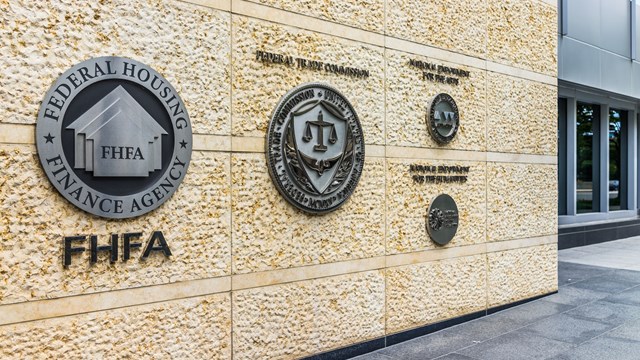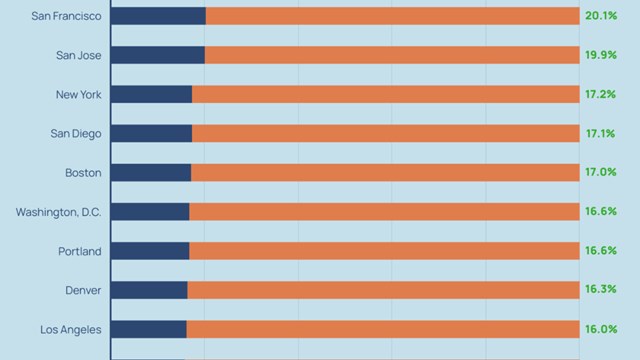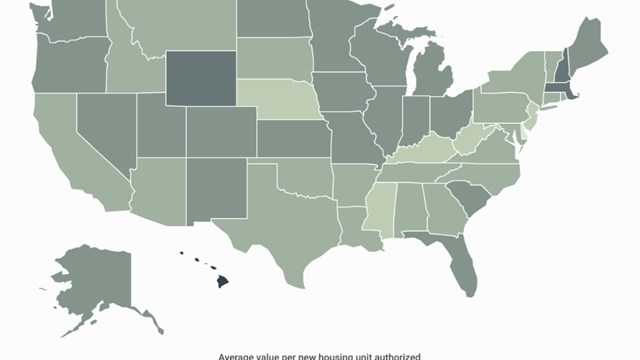You can’t turn on the television these days without seeing another show devoted to the legal genre—be it “The Good Wife,” “Suits,” “Franklin & Bash” or the many incarnations of “Law & Order.”
These shows rely not just on great characters, but the interesting and sometimes bizarre cases that the lawyers encounter—and almost all of them come (at least in part) from actual headlines. So it should come as no surprise that real-life attorneys—including those who represent New Jersey's condo, co-op and HOA communities—have some of the best stories to tell. Lawyers specializing in these buildings have been involved with unique and sometimes unbelievable stories—from the crazy cat lady who has imaginary felines running around in her backyard to the board member who went nuts the night of an annual meeting, barricaded himself in his apartment and had the cops waiting for him when he came out.
While the above examples may be exaggerated a bit, here are some real-life tales of the strange and unusual shared by some of New Jersey’s most reputable attorneys.
Look Out Below
When talking with fellow attorneys about unusual cases, Eric Frizzell, a partner with the law firm of Buckalew Frizzell & Crevina LLP in Glen Rock, is quick to pull one from his memory banks. It involved a gigantic sinkhole at an HOA complex in Central Jersey that threatened to devour the property. It wasn’t the massive size that makes the story so interesting; it’s the fact that the association was able to get the original developer from 20 years earlier to pay for fixing it.
“Our law firm represented the homeowners’ association,” Frizzell says, “and one day the property manager called me up and advised me of this five-foot sinkhole that had appeared in an open grassy area. He had concerns on how to proceed. Over the course of the next month, the sinkhole kept growing and growing and eventually became the width of a football field.”
According to Frizzell, the property had been a farm before the HOA was built. During the construction of the residential development, the developer failed to properly dispose of tree trunks and other naturally growing organic matter on the site, and instead just broke it up and plowed it under. Two decades later, that organic material was breaking down and causing havoc.
“It wasn’t hazardous waste or contaminated material, but this natural organic debris had deteriorated—it was a very unique and fascinating situation,” Frizzell says. “Based on the advice of the engineers brought in to analyze the area, the cost of dealing with this problem was going to be immense.”
“We had only started representing them about three months before, and they had already signed a release—so the HOA could not make a claim against the developer under New Jersey law, which issues a 10-year statute of repose barring any claims regarding construction deficiencies,” Frizzell continues. “The theory they presented to the New Jersey Department of Environmental Protection was that, based on state statutes, this area of the property was an area that met the statutory definition of an unclosed landfill. The reason the association went to the DEP for assistance and promoted this theory was because they were not bound by the statute of repose. The association had to very strenuously advocate for itself in front of the DEP. It needed some strong advocacy from the association to make the [administrative consent order] ACO as strong as it needed to be. It achieved results that originally seemed to be insurmountable.”
The court accepted the HOA’s argument and proceeded against the developer. As a result an administrative consent order (ACO) was executed with input from the association, and the national developer agreed to remediate, saving the association a cool $2 million in costs.
Cameras Don’t Lie
David J. Byrne, a partner with the law firm of Herrick, Feinstein LLP, with offices in Princeton and Newark, has represented associations in several landmark New Jersey Appellate Court decisions.
He’s helped uphold parking-related rules on public roads in a private community and protected a board from a defamation suit, a decision reported as Verna v. Links at Valleybrook Neighborhood Association, Inc. He’s also successfully argued that a condominium need not provide ADR prior to instituting an action for injunctive relief, and in another court battle, argued before New Jersey’s Appellate Division in favor of a community association’s right to tow vehicles, enforce restrictive covenants, and protect the owners’ privacy and the collection of assessments and attorneys’ fees.
While some of these may seem mundane, Byrne says that even normal cases that lawyers are involved with all the time still have some angle that makes them interesting or unique in some way—and that’s what keeps the job exciting and fun for him.
Still, once in a while he works on a case that is unusual in its own right. Recently, he had a situation with a large condo client that housed its own on-site closed circuit TV station. As it happens, the volunteer who ran the station didn’t like when a new board was put in place, and walked away from the responsibilities. Problem is, he walked away with lots of the station equipment—not realizing there were surveillance cameras in the room that caught his pilfering on camera. He claimed he didn’t take anything and a legal battle ensued.
“This was a 2,200-home complex, and they had the station in the clubhouse,” says Byrne. “When they realized stuff was missing, they accused the volunteer—who in turn claimed that he hadn't taken anything. We went on to mediation, and eventually settled, with the stuff brought back and no admission of liability. The interesting thing is that it created a neighborhood firestorm, with lots of letters going back and forth. It opened up a whole can of worms.”
Another story Byrne shares involves a group of clients who were tired of nothing being done about the leaks and defects in their units and showed up to a homeowners’ meeting, 100 strong, ready to take over the board—only to learn that the procedure for doing so had not been followed correctly, and nothing could be done. That confrontation almost became physical and Byrne had to do his part to keep the peace.
Other unbelievable occurrences he has dealt with include someone showing up stoned for a hearing, and someone asking if he should destroy documents right before they were to be produced in a case.
Too Affordable?
Hubert C. Cutolo, a partner with the law firm of Cutolo Mandel LLC in Manalapan says the most unique case he has been involved in deals with a community where 40 percent of the units were low income and affordable housing. Those 40 percent were paying a reduced assessment fee, and ultimately the association couldn’t support itself because 60 percent of the units were paying the bulk share and there weren’t enough funds to get what needed to be done, done.
“As the community began to age, it needed new roads, new roofs and the replacement of many of the common elements, and they just didn’t have the funds available,” Cutolo says. “We filed suit against all the affordable unit owners for a declarative judgment to declare that the affordable housing plan had expired.”
In New Jersey, each municipality has the constitutional obligation to make available a certain percentage of units for affordable housing—and somehow the bulk of this one municipality's ended up in this one HOA community.
“All affordable housing plans after 1996 have the affordable housing units paying the same assessments as the market rate, but that wasn’t the case back then, and it was a disproportionate amount (approximately $30 versus $249),” Cutolo says. “We worked with the borough and eventually a settlement was reached that was approved by the court at a fairness hearing whereby the borough would use affordable trust funds to pro-rate the difference in assessments over a three-year period. After three years, the affordable unit owners must pay the regular assessments as well.”
This solved all the association’s problems and set a precedent for others in the state.
“We never did get answers as to why there were so many units that were low and affordable housing, but this set up the notion that you can’t make one select group of condo owners pay for a state program,” he says. “That’s why the rule changed.”
Keith Loria is a freelance writer and a frequent contributor to The New Jersey Cooperator.










Leave a Comment